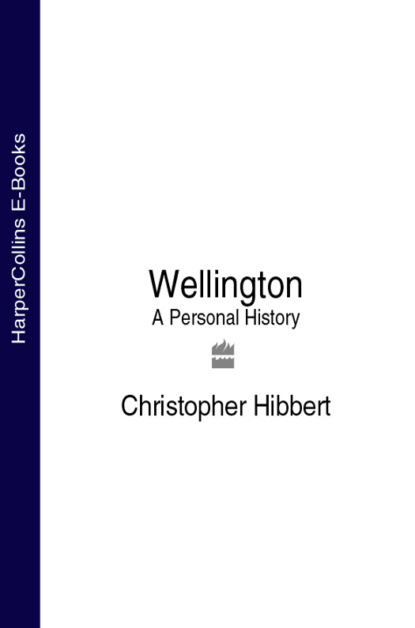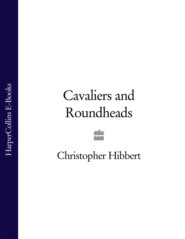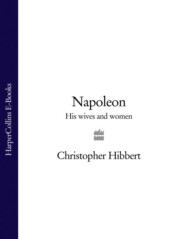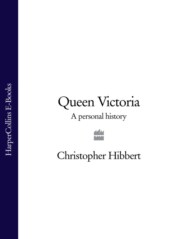По всем вопросам обращайтесь на: info@litportal.ru
(©) 2003-2025.
✖
Wellington: A Personal History
Настройки чтения
Размер шрифта
Высота строк
Поля
‘I arrived here this day, and I don’t know whether I am to be hanged drawn & quartered, or roasted alive,’ he wrote to his brother Richard from Harley Street on 4 October, having landed at Plymouth a few hours before. ‘However I shall not allow the Mob of London to deprive me of my temper or my spirits; or of the satisfaction which I feel in the consciousness that I acted right.’
It was not only the displeasure of the London mob, however, that he had cause to apprehend. The many enemies of his too successful family were making the most of their opportunity to blacken the Wellesley name. The Duke of Richmond told Sir Arthur not to bother about the ‘whispers of those who dislike the name of Wellesley’; but it was difficult to ignore the barbs of such men as Samuel Whitbread, the rich brewer and Radical Member for Bedford, who rejoiced ‘to see the Wellesley pride a little lowered’,
and William Cobbett, that other leading Radical, a former sergeant-major in the Army and publisher of the influential Weekly Political Register, who confessed himself to be delighted to have the ‘rascals on the hip’. It was evident, Cobbett wrote, that Sir Arthur Wellesley was ’the prime cause – the only cause – of all the mischief, and that from the motive of thwarting everything after he was superseded. Thus do we pay for the arrogance of that damned infernal family.’
In the columns of his Weekly Political Register, Cobbett went so far as to declare that Sir Arthur Wellesley had come home ‘for the purpose of avoiding another meeting’ with the French.
Sir Arthur Wellesley claimed that he read the abuse of himself ‘with as much indifference as [he did] that of the great General’, Sir Hew Dalrymple. But his brothers did not hide their distress at the charges and insults to which the family was being subjected. William spent his time ‘cursing and swearing’; Henry fell ill; Richard at first wept, then, in Arthur’s words, took to whoring.* (#litres_trial_promo) Even Arthur, indifferent to previous insults as he had contrived to appear, was stung painfully enough by Cobbett’s charges of cowardice to threaten suing him for libel.
He also appears to have followed Richard’s example and, censorious of Richard’s ‘whoring’ as he was in his letters to William, to have sought relief in his agitation in the arms of Harriette Wilson. At least Harriette Wilson maintained that this was so; and, if it was, he surely found her body more exciting than she claimed to have found his conversation:
‘Do you know,’ said I to him one day,’ do you know the world talks about hanging you?’
‘Eh?’
‘They say you will be hanged in spite of all your brother Wellesley can say in your defence.’
‘Ha!!’ said [he] very seriously, ‘What paper do you read?’
‘It is the common talk of the day,’ I replied …
He called on me the next morning before I had finished my breakfast. I tried him on every subject I could muster. On all, he was most impenetrably taciturn. At last he started an original idea of his own.
‘I wonder you do not get married, Harriette!’
(By the by, ignorant people are always wondering.)
‘Why so?’
He however, gives no reason for anything unconnected with fighting, at least since the convention of Cintra; and he, therefore, again became silent. Another burst of attic sentiment blazed forth.
‘I was thinking of you last night, after I got into bed.’
‘How very polite to [Lady Wellesley],’ I observed. ‘Apropos to marriage, how do you like it?’
[Sir Arthur] who seems to make a point of never answering one, continued, ‘I was thinking – I was thinking that you will get into some scrape.’
‘Nothing so serious as marriage neither, I hope!’
‘I must come again tomorrow, to give you a little advice.’
‘Oh, let us have it all out now, and have done with it.’
‘I cannot,’ he said putting on his gloves and taking a hasty leave of me.
I am glad he is off, thought I, for this is indeed very uphill work. This is worse than Lord Craven.
13 Board of Enquiry (#ulink_1f5e3e39-088f-5cac-9147-5f671ac9e51e)
1808 (#ulink_1f5e3e39-088f-5cac-9147-5f671ac9e51e)
‘This is Sir Arthur (whose valour and skill, began so well but ended so ill).’
TO ADD TO Sir Arthur’s other worries, there was talk of an enquiry into the Convention of Cintra being set up by a Board of General Officers who were to examine General Wellesley’s part in formulating it. So long as the verdict of the Board was unknown, Lord Castlereagh doubted the wisdom of Sir Arthur’s attending the levee at St James’s Palace; and when the General asked the Secretary for War if he would drive him there, Castlereagh ‘hemmed & hawed, and said that there was so much ill-humour in the public mind that it might produce inconvenience, and, in short, he advised me not to go.’
But Sir Arthur was determined to go. He had intended to do so as ‘a matter of respect and duty to the King’ and he was not the kind of man to shrink from showing his face on account of ‘ill-humour in the public mind’. He now looked upon his attendance as a ‘matter of self-respect and duty’ to his own character. ‘I therefore insist on knowing whether this advice proceeds in any degree from His Majesty,’ he replied to Castlereagh’s letter, ‘and I wish you distinctly to understand that I will go to the levee tomorrow, or I never will go to [another] levee in my life.’
He did go and the King was perfectly amicable. His Majesty was not in favour of a public enquiry into the Convention of Cintra and when such a tribunal was first suggested he rejected the proposal out of hand. He was eventually obliged to tolerate one, however; and in November a Board of General Officers was convened in the Great Hall of Chelsea Hospital under the presidency of an intimate friend of the Duke of York, the tall, austere, Scottish General Sir David Dundas, Governor of the Hospital, who had been a captain in the Dragoons long before Sir Arthur Wellesley was born. Sir Hew Dalrymple was recalled from the Peninsula to answer the Board’s questions; Sir Arthur Wellesley returned from Ireland where he had briefly gone to see his family and to consult Croker, still his deputy in the Chief Secretary’s office. Sir Harry Burrard was already in England.
All three had been the subject of endless calumny, ridicule and jokes, in broadsheets, pamphlets and verse, both Byron and Wordsworth eventually adding their voices to the general condemnation.
They were shown in caricature dangling grotesquely from gallows with white feathers in their hats; they were depicted as inmates of Bedlam drinking toasts over the prostrate body of a dishonoured Britannia. James Gillray caricatured kneeling British officers kissing Junot’s bottom. Charles Williams parodied ‘The House that Jack Built’ in seven designs, one of which was inscribed ‘This is Sir Arthur (whose valour and skill, began so well but ended so ill)’.
In another caricature George Cruikshank showed Sir Arthur kneeling before Junot and asking him abjectly, ‘May it please your Highness to accept these terms as a Convention & should any of them seem to you Ungrateful, dictate according to your Noble Will’4
Charles Williams presented Dalrymple as the butt of a fellow officer singing,
T was You Sir Hew — ’T was Hew who let the French escape That makes you look so blue Sir Hew.5
Newspapers took to printing comments on the Convention surrounded by thick black funereal borders. William Cobbett lambasted all responsible for agreeing to it in the pages of his Weekly Political Register. Indignant people told each other that Walter Scott’s friend, the author George Ellis, had summed it up nicely when he said that in future he would spell ‘Humiliation’ with a ‘Hew’.
The Board examined the three Generals who were the object of all this ridicule with the most ponderous and elaborate diligence. Sir Hew Dalrymple answered questions which seemed to reflect adversely upon his good sense or honour with a touchy hauteur, occasionally revealing his animus against a junior colleague who, while a signatory to the agreement, wished to dissociate himself from it. Sir Arthur Wellesley, while taking care to exonerate Sir Harry Burrard from all blame, did not trouble to disguise his disdain for Dalrymple whom he considered wholly responsible for the pernicious document. ‘I gave him my opinion when he asked for it, and when I thought it desirable to give it to him,’ he deposed. ‘But I was not the negotiator, and could not be, and was not so considered, the commander of the forces being present in the room, deciding upon all points … If the commander had given me instructions to negotiate this instrument and I had then negotiated it, I might have been responsible for its contents … but as it is my signature is a mere form.’
Day after day the members of the Board listened to such speeches, examined witnesses, pored over bundles of papers, read transcripts, deliberated among themselves; and in December, anxious not to ruffle any feathers or hurt anyone’s feelings, they issued a report which, commenting upon a number of matters other than that which they had been called upon to examine, concluded that ‘no further military proceeding was necessary on the subject’.
When the Duke of York pointed out that their verdict scarcely answered the question which they had been asked to determine, they met again; and, after lengthy deliberation, came to the conclusion, by four votes to three, that they approved of the Convention.
Wellesley was free to return to Dublin. His duties there were more irksome than ever now; and he longed to serve in the Army again. ‘I shall go to England for the meeting of Parliament,’ he wrote, ‘and mean to join the Army as soon afterwards as I shall be allowed to go.’
He was back in London by the beginning of 1809 and took up his seat in the Commons again, gratified to receive the thanks of the House for his defeat of Junot at Vimeiro; and, with an eye no doubt on his future career, he spoke in defence of the Duke of York whose witty, pretty and wildly extravagant mistress, Mrs Mary Anne Clarke, had been accepting money for recommending officers to the notice of her lover, although Wellesley expressed the view in private that the Duke had been most indiscreet and had laid himself open to the charge that he had ‘manifested so much weakness and had led such a life’ that there were grounds for doubting that he was a ‘proper person to be trusted with the execution of the duties of a responsible office’.
In the event the Duke of York felt obliged to resign as Commander-in-Chief and was succeeded by the dour old General Dundas who, because of his friendship with the Duke, as well as his age, would be ready to hand the Horse Guards back to him when the scandal had subsided.
In the month of Dundas’s appointment, Wellesley learned that he was to be given a new command. There had been some doubt as to whether the King would approve of so young a lieutenant-general being given such responsibility. But Castlereagh, to whom Wellesley sent long and useful memoranda on the likely future course of fighting in the Peninsula, was a strong advocate; and, as his Majesty was informed, the Cabinet ‘humbly conceived’ that Sir Arthur was the General most likely to succeed in the campaign that lay ahead, and therefore proposed that ‘His Majesty’s service (without prejudice to the claims of the distinguished officers in His Majesty’s Army who are his seniors) may have the benefit of Sir Arthur Wellesley’s being employed where he has had the good fortune of being successful.’
There were, after all, few alternatives. Sir John Moore, who had been left in command in the Peninsula, having advanced from Lisbon towards Valladolid, had been forced to retreat to Corunna when the French advanced upon him with 70,000 men after the fall of Madrid; and at Corunna he had been mortally wounded in a battle against Marshal Soult. Moore’s successor, Lieutenant-General Sir John Cradock, was believed to be insufficiently capable. Dalrymple and Burrard were not even considered. So Wellesley was appointed to the command and made his preparations for departure.
One of his last missions, so Harriette Wilson said, was to say goodbye to her.
He called to take a hasty leave of me [she wrote], a few hours before his departure.
‘I am off to Spain directly,’ he said.
I know not how it was but I grew melancholy. [He] had relieved me from many duns which else had given me vast uneasiness. I saw him there, perhaps for the last time in my life … I burst into tears …
‘If you change your home,’ [he] said kissing my cheek, ‘let me find your address at Thomas’s Hotel as soon as I come to England; and, if you want anything in the meantime, write to Spain; and do not cry; and take care of yourself; and do not cut me when I come back.
‘Do you hear?’ he said, first wiping away some of my tears with my handkerchief; and then, kissing my eyes, he said, ‘God bless you!’ and hurried away.









